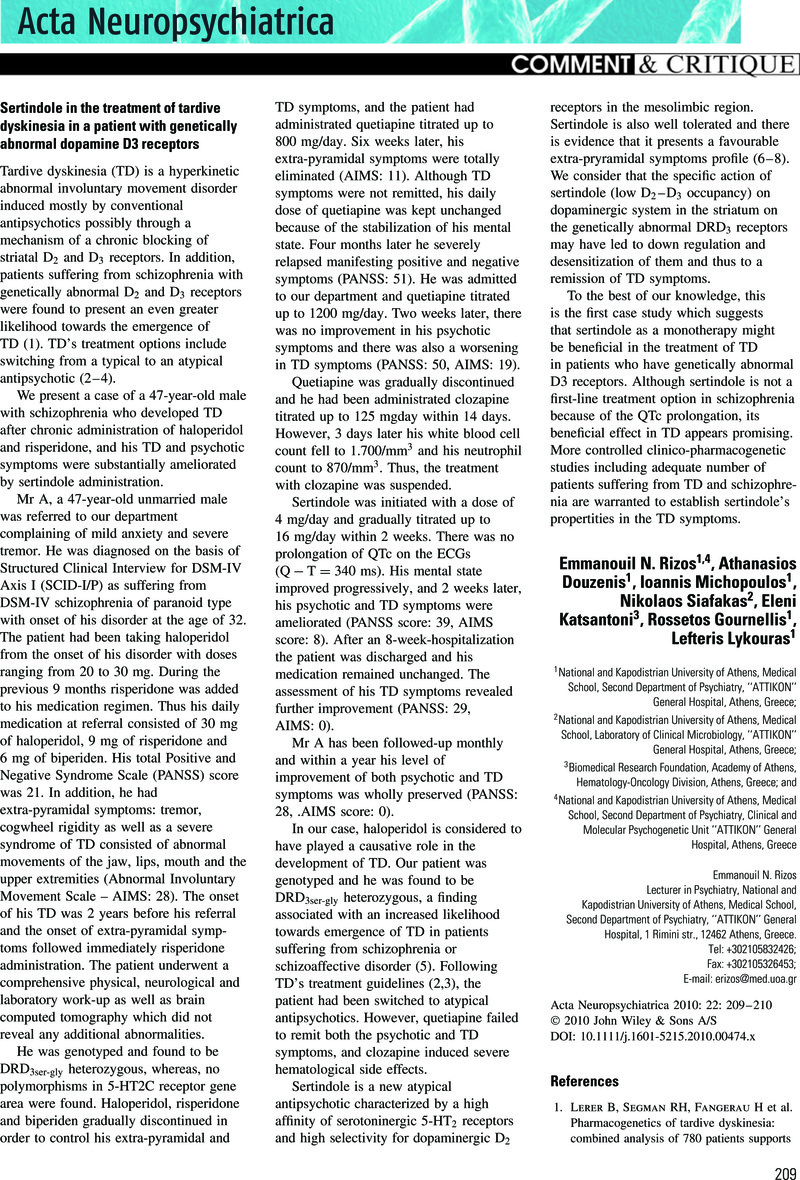Crossref Citations
This article has been cited by the following publications. This list is generated based on data provided by Crossref.
Raidoo, Deshandra M.
2012.
Fluoxetine-induced tardive dyskinesia in a patient with Parkinson's disease.
Acta Neuropsychiatrica,
Vol. 24,
Issue. 5,
p.
306.
2017.
Haloperidol.
Reactions Weekly,
Vol. 1643,
Issue. 1,
p.
136.





